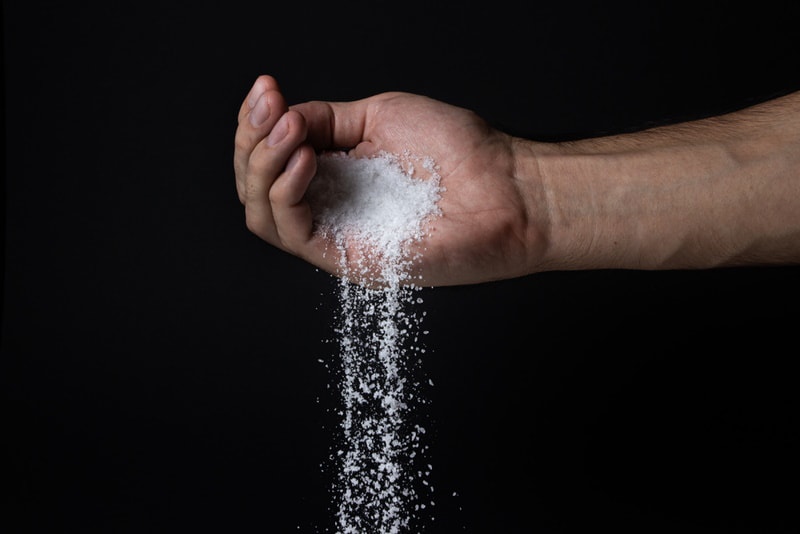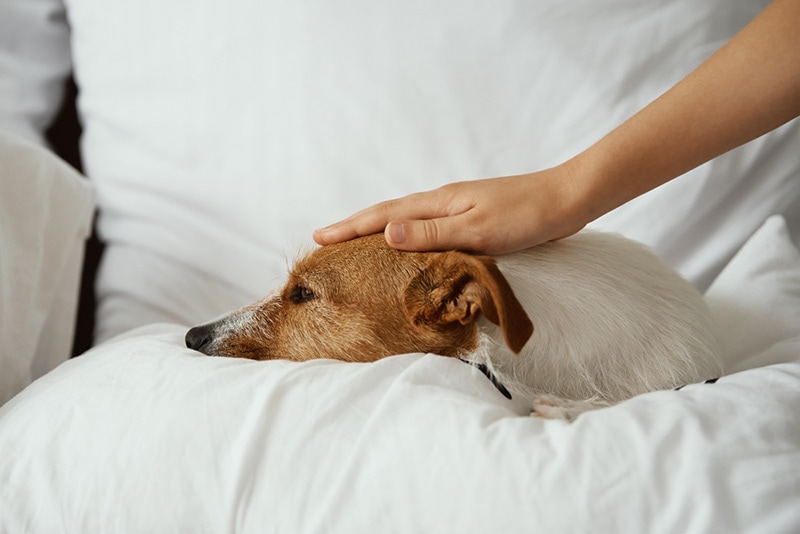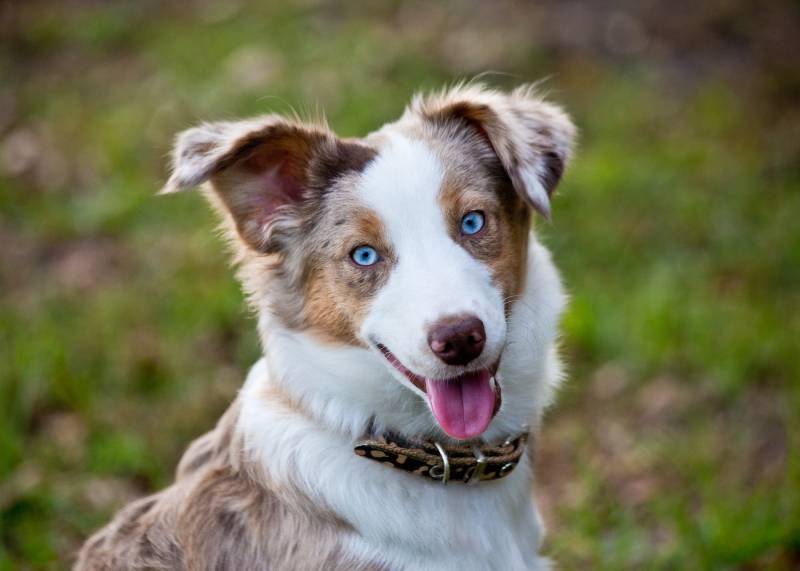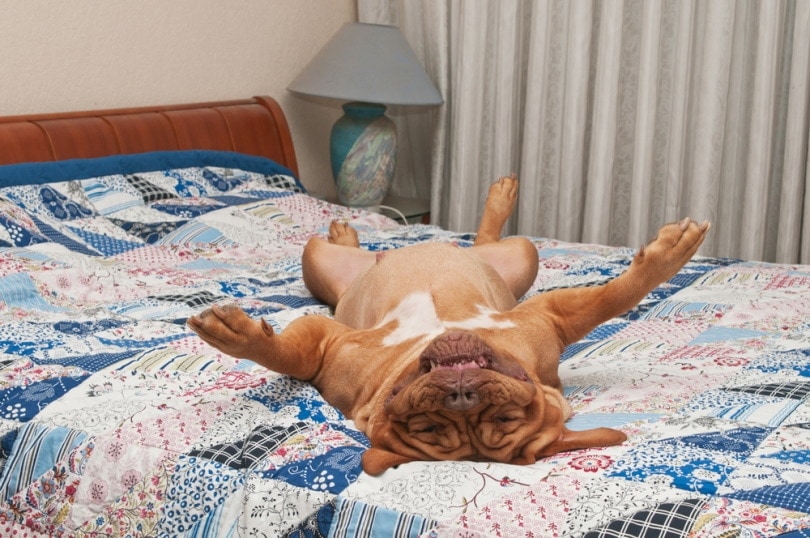Can Dogs Eat Ritz Crackers? Vet-Approved Feeding Facts
Updated on

Click to Skip Ahead
Ritz crackers have been enjoyed by North Americans since 1934. These rich, buttery, tasty crackers go with everything from cheese to peanut butter and even tuna.
If you’ve ever been tempted to share a few of your Ritz crackers with your dog but weren’t sure if you should, you should know that while Ritz crackers are safe for most dogs to eat, they aren’t exactly recommended.
Let’s take an in-depth look at Ritz crackers and why you shouldn’t make them regular treats for your dog.
Why Are Ritz Crackers Not Ideal for Dogs?
These crackers do not contain anything toxic to dogs, but they don’t have any nutritional benefits either.
The following are the ingredients of the original Ritz crackers:
- Unbleached enriched flour (wheat flour, niacin, reduced iron, thiamine mononitrate (vitamin B1), riboflavin (vitamin B12), folic acid)
- Vegetable oils
- Sugar
- Salt
- Leavening (calcium phosphate, baking soda)
- High fructose corn syrup
- Soy lecithin
- Malted barley flour
- Natural flavor

Here is the breakdown of the nutritional facts for 100g:
- Calories: 500 kcal
- Fat:12g
- Sodium: 656mg
- Total Carbohydrates: 5g
- Total Sugars: 25g
- Protein: 25g
- Calcium: 143mg
- Iron: 38mg
- Potassium: 94mg
Carbohydrates
Ritz crackers are 62.5% carbs, but dogs get enough carbohydrates from their dog food. Carbohydrates are high-calorie complex sugars. They are used as an energy source in the body but too much will lead to weight gain over time. Obesity is a common problem in dogs which can lead to joint problems, pancreatitis, and even some types of cancer.
Salt
Sodium is necessary in your dog’s diet, but too much salt can be bad for them. In fact, it can lead to salt poisoning, though it would take a large number of crackers for this to occur. Still, Ritz crackers are high in salt, and it’s best to not have excessively salty snacks.

Sugar
Ritz crackers have 1 gram of sugar, which might not seem like much, but the more crackers they eat, the more sugar they consume. The size of your dog is also a significant factor. Ritz crackers contain high fructose corn syrup too. Too much sugar over time can lead to obesity and it has no place in their diet.
Fats
Ritz crackers are 28% fat. Fat isn’t great for dogs. Other than obesity, it can also lead to pancreatitis.
Signs of acute pancreatitis are:
- Extreme lethargy
- Abdominal pain
- Poor appetite
- Persistent vomiting and/or diarrhea
- Dehydration
- Collapse
If your dog has any of these signs, regardless of the cause they will need veterinary treatment.

Gastrointestinal Upset
If a dog eats too much rich human food, like Ritz crackers, there’s the potential for digestive issues. You might find your dog develops vomiting, and diarrhea which should be treated by a vet.
Additional Ingredients
Some varieties of Ritz crackers will contain extra ingredients that are harmful to dogs. For example, the fudge-covered variety contains cocoa powder. So if your dog consumes anything but the original Ritz crackers check the ingredients for anything toxic to dogs. This includes chocolate, cocoa powder, xylitol, grapes and raisins. Even garlic, onion and macadamia nuts can be harmful if large amounts are consumed relative to your dog’s size.

Healthy Snacks for Dogs
Now that you have a better idea of the issues of Ritz crackers and crackers in general, you might be wondering about healthier options for treats for your dog.
Any of the following will provide nutritional benefits and can be given to your dog in moderation:
- Apples: Just remove the core and the seeds beforehand.
- Bananas: They have high-calorie content, so only give them to your dog occasionally.
- Blueberries: These are full of amazing antioxidants!
- Broccoli: This can be given cooked or raw. Just be sure it is plain, with no seasonings.
- Carrots: The crunchy texture is good for dental health. .
- Green beans: If you’re giving cooked ones to your dog, keep them unseasoned.
- Green peas: These can be fed to your dog frozen or fresh.
- Squash: Remove the rind and cook it unseasoned. Any squash is healthy, including pumpkin.
- Strawberries: These are high in sugar, so only provide them occasionally.
- Sweet Potatoes: These should be cooked and unseasoned.
- Watermelon: Remove the rind and seeds first, but it’s great for hydrating your dog.
Conclusion
Ritz crackers might have a few minerals that are considered healthy, like calcium and potassium, but overall, the bad outweighs the good. Ritz crackers are quite fatty, sugary and salty and just not great for dogs. Their stomachs may have trouble digesting these and other crackers, particularly in larger amounts.
If your dog ate a few original Ritz crackers, there likely won’t be anything to worry about, but it’s not a good idea to give them as treats regularly. Stick with foods that offer actual nutritional benefits and that your dog really loves. Those are the best kind of dog treats!














